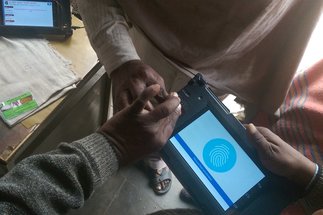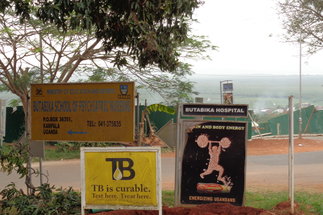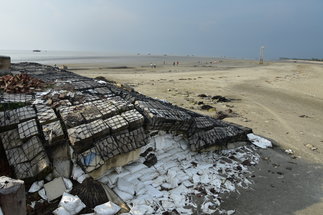Department 'Anthropology of Politics and Governance'
Research Focus | People | Research Topics | Working Groups | Research Group
The Department ‘Anthropology of Politics and Governance’, established in 2020, brings together scholars who use the tools and techniques of anthropology to research political arrangements, governance initiatives, and social movements that organize the contemporary world and animate future possibilities.
The Department’s research responds to the sense that we live in critical times. Societies are challenged by new health scares; people fear that the changing climate could end human life as we know it; and many people experience war or totalitarian rule, or worry about the spread of extremism and violence. Reactions to these challenges are multiple, ranging from spectacular action and noisy protest to attempts to re-establish control by means of new techniques and technologies of rule. We study how such concerns emerge within specific lifeworlds, and how people’s situated action addresses globally relevant problems and contributes to the repositioning of humans in our times. We focus our attention on the emblematic topics of Ecological Transformations and Well-being, and we address the crucial role Techno-optimism plays in attempts to come to terms with and govern the complexities of (human) life.
In the anthropological spirit, research work is located in a wide range of localities across the globe and begins with typical tensions that organise human action. For example, we note that the fear of things to come is coupled with the continuous optimistic production of the near future through pragmatic action. In this field of tension between hoping and dreading, visionary formulations and practical interventions often struggle to balance the desire to create an environment of care with the need to bring about order through the exercise of control. Through the study of the conjunction between care and control – in the named fields of ecological transformation, well-being and techno-optimism – we seek to understand contemporary practices of reproducing life. At one level, we disentangle the different socio-cultural responses to universal problems, while at another level, we reflect on the fateful intertwining of people’s lives within the planetary eco-system.
To promote conversations between our researchers and beyond our department, we have created working groups that address central theoretical questions emerging from the volatile fields of human action we study. The group Political Assembly considers the role different kinds of collectives play for shaping future oriented action. How is “the political” assembled in different contexts? What is the differential potential vested in groupings, such as demos, population, crowd, or public? The group Lived Utopias reflects on the relation between present lives and imagined or desired futures. We are particularly interested in experiences that connect temporalities; for example, how do utopian orientations become anchored in lived experience? The group Science and Universality engages with the claim to universality inherent to scientific thinking and the controversies generated when apparently universal knowledge encounters real-world contexts. We are interested in the tensions between local ways of knowing and universal knowledge claims, and we study the relevance of this friction for shaping life on the planet. Because these groups function as labs for theorising and developing our findings, they will change over time.


